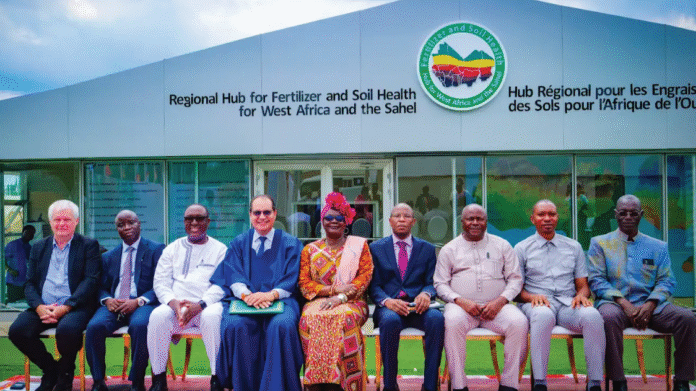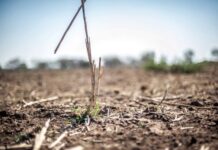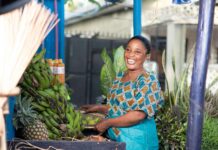One year after its launch, the Regional Hub for Fertilizer and Soil Health for West Africa and the Sahel is set to roll out transformative digital soil maps and agronomy tools to strengthen smallholder farming, address widespread land degradation, and build climate-resilient food systems across the region.
The Hub, headquartered at the International Institute for Tropical Agriculture (IITA) in Ibadan, Nigeria, was established following the 2023 Lomé High-Level Roundtable on Fertilizers and Soil Health. Officially launched at the 2024 Africa Fertilizer and Soil Health Summit in Nairobi, it represents a regional commitment to reversing declining soil fertility and promoting sustainable agricultural productivity.
“African soils are in crisis,” said Bernard Vanlauwe, Deputy Director General for Research at IITA and chair of the Hub’s steering committee. “Up to 80% of cultivated land is degraded, leading to severe nutrient losses and economic damage worth $4 billion annually. Poor soil health translates to poor yields, food insecurity, and entrenched poverty for smallholder farmers.”
In West Africa and the Sahel, farmers often apply fertilizers without scientific understanding of their soils’ specific nutrient needs. This blanket approach results in poor crop performance, inefficient fertilizer use, and environmental degradation. The Hub’s upcoming release of high-resolution digital soil health maps aims to change that.
These maps, built using soil profiling and geospatial data, allow for site-specific nutrient management, enabling farmers to apply the right fertilizer, in the right amount, at the right time and place—what experts call the “4R” principles of soil fertility management. The maps are expected to improve productivity, reduce pollution, and guide precise, climate-smart farming practices.
“By deploying digital tools like soil maps, the Hub is laying the groundwork for resilient, sustainable food systems,” said Vanlauwe. “This is not just about increasing yields—though yield increases of up to 40% are possible—but also about building a healthier environment and stronger livelihoods.”
The digital tools are supported by AgWise, an open-source, climate-informed agronomic advisory platform. AgWise integrates real-time weather, soil, satellite, and market data to deliver tailored recommendations on fertilizer use, crop selection, planting times, and best farming practices.
The Hub is also investing in soil and plant analytical laboratory services, developing tailored fertilizer blends, and applying advanced data modeling to inform regional soil strategies. These efforts align closely with regional development frameworks including the ECOWAS Fertilizer and Soil Health Roadmap, the African Union’s 10-Year Soil Health Action Plan, and the Nairobi Declaration.
The initiative’s success hinges on a powerful consortium of partners:
- IITA hosts the Hub and leads agricultural research.
- OCP Africa delivers customized fertilizer products tailored to African soils.
- African Plant Nutrition Institute (APNI) provides farmer training and soil science research.
- International Fertilizer Development Center (IFDC) promotes effective fertilizer use and public-private partnerships.
- Mohammed VI Polytechnic University (UM6P) supports precision agriculture through soil mapping and remote sensing.
- Accelerating the Impacts of CGIAR Climate Research for Africa (AICCRA) contributes technical expertise and policy support.
- ECOWAS ensures regional alignment and policy advocacy.
Looking ahead, the Hub aims to improve soil health on 1.5 million hectares, increase yields and incomes for over 3 million smallholder farmers, and help 1.5 million farmers adapt to climate risks by 2033.
With the first suite of digital soil maps set to be released in 2025, West Africa’s farming future may be on the cusp of a data-driven transformation—one rooted in science, sustainability, and collaboration.
“This isn’t just about soil,” Vanlauwe emphasized. “It’s about food security, economic development, and giving our farmers the tools they need to thrive in a changing climate.”








